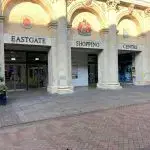Wondering what a BID is and what it does? There are over 330 Business Improvement Districts (BIDs) in the UK. They are business-led and business funded bodies which are formed to make improvements to a defined commercial area.
BIDs were first formed in the US and Canada then introduced in Britain as part of the Local Government Act in 2003. The first BID in the UK was in Kingston in Surrey, and today, most of the country’s BIDs are in towns or cities.
Businesses within the defined commercial area pay between 1 and 4 percent of their rateable value on top of their business rates. This money goes directly to the BID management body which is overseen by a BID Board made up of a variety of local business owners. The board decides on how the funds are used for business improvement projects. In Gloucester, the money is spent on delivering a safer, more attractive and promoted city. Examples include: how Gloucester BID works in partnership to fund the City Protection Officers; funding of key events such as Tall Ships and Glos Retro Festival and the provision of planters and flowers throughout the city.
The benefit of BIDs to local traders are that they are locally driven, meaning that each individual BID will have its own priorities and action areas. The thinking behind BIDs is that they will lead to increased footfall, improved staff retention and reduced business costs, as a result of general improvements in the area and greater awareness amongst visitors.
While these action areas are common across many BIDs, British BIDs, the trade body for British BIDs, states that the role of BIDs also extends to:
• Businesses decide and direct what they want in their area.
• Businesses are represented and have a voice in issues affecting their trading area.
• BID levy money is ring-fenced for use only in the BID area.
• Increased footfall and spend.
• Improved staff retention.
• Reduced business costs.
• Enhanced marketing and promotion.
• Looking at infrastructure, pollution and movement.
• Guidance in place shaping vision activities.
• Facilitated networking opportunities with neighbouring businesses.
• Assistance in dealing with the Council, Police and other public bodies.
To establish a BID, a BID proposer needs to submit a proposal to the local authority along with a business plan. Once the local authority has ratified the proposal, they will put it to a ballot. To pass, the majority of businesses who would be subject to the levy (if approved) must vote in favour of it. Additionally, a majority of votes must be achieved in terms of overall rateable values.
Once approved, the Business Improvement District body is established. This is often a private company but can be in partnership with the local authority. Most Business Improvement District bodies are not-for-profit companies. The maximum period that a Business Improvement District levy can be charged is for 5 years. A new ballot is required after that.
To find out more about BIDs click here: https://britishbids.info/








